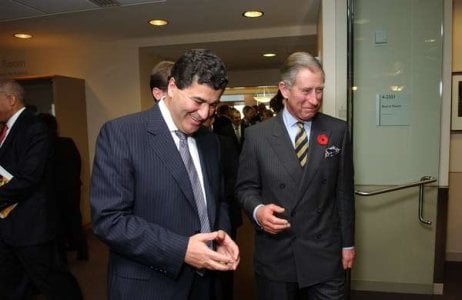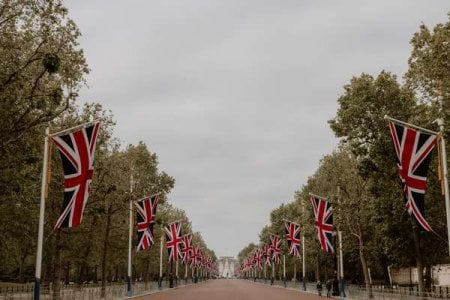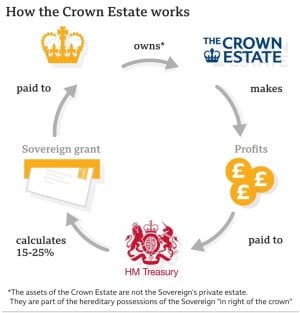The Truth Behind King Charles's Pay Hike!
Critics are calling for greater transparency from the UK's royal family, prompting questions about the secrecy surrounding Buckingham Palace's financial matters.
Many are raising their eyebrows at the fact that Buckingham Palace's veil of secrecy is perhaps sturdier than MI5's (the UK’s Security Service).
The question arises: why all the secrecy? In matters of the monarchy, the saying 'What you don't see won't hurt you' comes to mind.
However, the Royals' spending a lot of money on luxurious things and seeming to care more about living extravagantly could make people wonder if they are using public funds wisely and if their actions benefit the public they are supposed to serve.

The high costs of travel and maintaining grand homes have caught the attention of critics.
This led to concerns about whether personal interests and political agendas might overshadow their public duties.
As a result, the demand for transparency persists, and many are increasingly questioning the royal family's actions.
Enter the latest saga of the Royal soap opera: the tale of King Charles's pay hike.
In a collaboration between the Palace and the UK Government, a recent announcement tweaked the calculation for determining the size of the Sovereign Grant, the official fund for the Royal household.
To the untrained eye, it may seem like a cut in the grant is on the horizon. However, it was revealed that a significant increase, around 45 per cent (£40 million), is expected by 2025.
According to the official statement, the Sovereign Grant will be 12 per cent of the crown estate's net profits next year, down from 25 per cent.
At first glance, it suggests a decrease. However, the plot thickens as the statement later reveals that the total grant for 2024/25 will remain steady at £86.3 million.
This suggests that rather than experiencing any reduction, there is a remarkable jump anticipated in funding, from £86 million in the upcoming year to a staggering £126 million by 2026.

In addition to the funding increase, there is more to the story.
The Palace attempted to present a picture of royal generosity by issuing a statement suggesting that King Charles intended for the Crown Estate profits to benefit the public.
Surging offshore wind farm profits are expected to grant King Charles a substantial boost of $152 million from the taxpayer.
Back in January, Charles expressed his desire for the wind farm profits to be utilised for the 'public good'.
Considering British taxpayers contribute significantly towards funding the monarchy, it’s only natural to hope that the ‘public good’ extends beyond other ‘royal’ expenses.
Understandably, this muddies the waters for any discussion about royal finances.
King Charles does not own the Crown Estate. It is considered a national resource, not a personal bank account for the Royals, as signified by its description of belonging to the monarchy 'by way of the Crown'.
Similarly, the Duchies of Lancaster and Cornwall, often considered 'private estates', fall into the same category as the Crown Estate, being national resources.
Despite this, the monarchy convinces us that these revenues support their operations.
However, the reality is far more complex and obscured by misconceptions.
The truth may come as a surprise: the Crown Estate does not actually fund the monarchy.
This misunderstanding only emerged in 2011 when the grant size was linked to estate profits.
In this intriguing tale of royal income, funding, and wealth, things are not what they seem.
As we pull back the curtain, the UK Government, on the other hand, insists it can't afford crucial services.
The Sovereign Grant doesn’t foot the complete bill of the monarchy, which, according to Republic, costs us in excess of £345m.
Without the exposure of this secrecy and misleading information, that figure could continue to rise.

Members, what are your thoughts on the demand for transparency regarding the UK's royal family finances? Do you believe that there should be more openness and clarity about how the Sovereign Grant is used and allocated?
Many are raising their eyebrows at the fact that Buckingham Palace's veil of secrecy is perhaps sturdier than MI5's (the UK’s Security Service).
The question arises: why all the secrecy? In matters of the monarchy, the saying 'What you don't see won't hurt you' comes to mind.
However, the Royals' spending a lot of money on luxurious things and seeming to care more about living extravagantly could make people wonder if they are using public funds wisely and if their actions benefit the public they are supposed to serve.

The royal family's salary is funded by the Sovereign Grant, which is a portion of the profits generated by the Crown Estate. Image by 12019 from pixabay
The high costs of travel and maintaining grand homes have caught the attention of critics.
This led to concerns about whether personal interests and political agendas might overshadow their public duties.
As a result, the demand for transparency persists, and many are increasingly questioning the royal family's actions.
Enter the latest saga of the Royal soap opera: the tale of King Charles's pay hike.
In a collaboration between the Palace and the UK Government, a recent announcement tweaked the calculation for determining the size of the Sovereign Grant, the official fund for the Royal household.
To the untrained eye, it may seem like a cut in the grant is on the horizon. However, it was revealed that a significant increase, around 45 per cent (£40 million), is expected by 2025.
According to the official statement, the Sovereign Grant will be 12 per cent of the crown estate's net profits next year, down from 25 per cent.
At first glance, it suggests a decrease. However, the plot thickens as the statement later reveals that the total grant for 2024/25 will remain steady at £86.3 million.
This suggests that rather than experiencing any reduction, there is a remarkable jump anticipated in funding, from £86 million in the upcoming year to a staggering £126 million by 2026.

The income from the Sovereign Grant is used to cover the official expenses and duties of the royal family members, such as their public engagements, official travel, and maintenance of royal residences. Image by Josh Withers from pexels
In addition to the funding increase, there is more to the story.
The Palace attempted to present a picture of royal generosity by issuing a statement suggesting that King Charles intended for the Crown Estate profits to benefit the public.
Surging offshore wind farm profits are expected to grant King Charles a substantial boost of $152 million from the taxpayer.
Back in January, Charles expressed his desire for the wind farm profits to be utilised for the 'public good'.
Considering British taxpayers contribute significantly towards funding the monarchy, it’s only natural to hope that the ‘public good’ extends beyond other ‘royal’ expenses.
Understandably, this muddies the waters for any discussion about royal finances.
King Charles does not own the Crown Estate. It is considered a national resource, not a personal bank account for the Royals, as signified by its description of belonging to the monarchy 'by way of the Crown'.
Similarly, the Duchies of Lancaster and Cornwall, often considered 'private estates', fall into the same category as the Crown Estate, being national resources.
Despite this, the monarchy convinces us that these revenues support their operations.
However, the reality is far more complex and obscured by misconceptions.
The truth may come as a surprise: the Crown Estate does not actually fund the monarchy.
This misunderstanding only emerged in 2011 when the grant size was linked to estate profits.
In this intriguing tale of royal income, funding, and wealth, things are not what they seem.
As we pull back the curtain, the UK Government, on the other hand, insists it can't afford crucial services.
The Sovereign Grant doesn’t foot the complete bill of the monarchy, which, according to Republic, costs us in excess of £345m.
Without the exposure of this secrecy and misleading information, that figure could continue to rise.
Key Takeaways
- Growing calls for an end to royal secrecy are increasing, with the monarchy being more secretive than UK security services.
- The UK Government recently announced a change in the calculation for determining the size of the sovereign grant, which gives the impression of a decrease, but in reality, it will probably increase by 45 per cent in 2025.
- The crown estate is not the personal property of Charles Mountbatten-Windsor but belongs to the crown, a state institution.
- The monarchy is accused of deceiving the public about its income, funding, and wealth, with the sovereign grant not covering the full cost of the monarchy.
Members, what are your thoughts on the demand for transparency regarding the UK's royal family finances? Do you believe that there should be more openness and clarity about how the Sovereign Grant is used and allocated?








